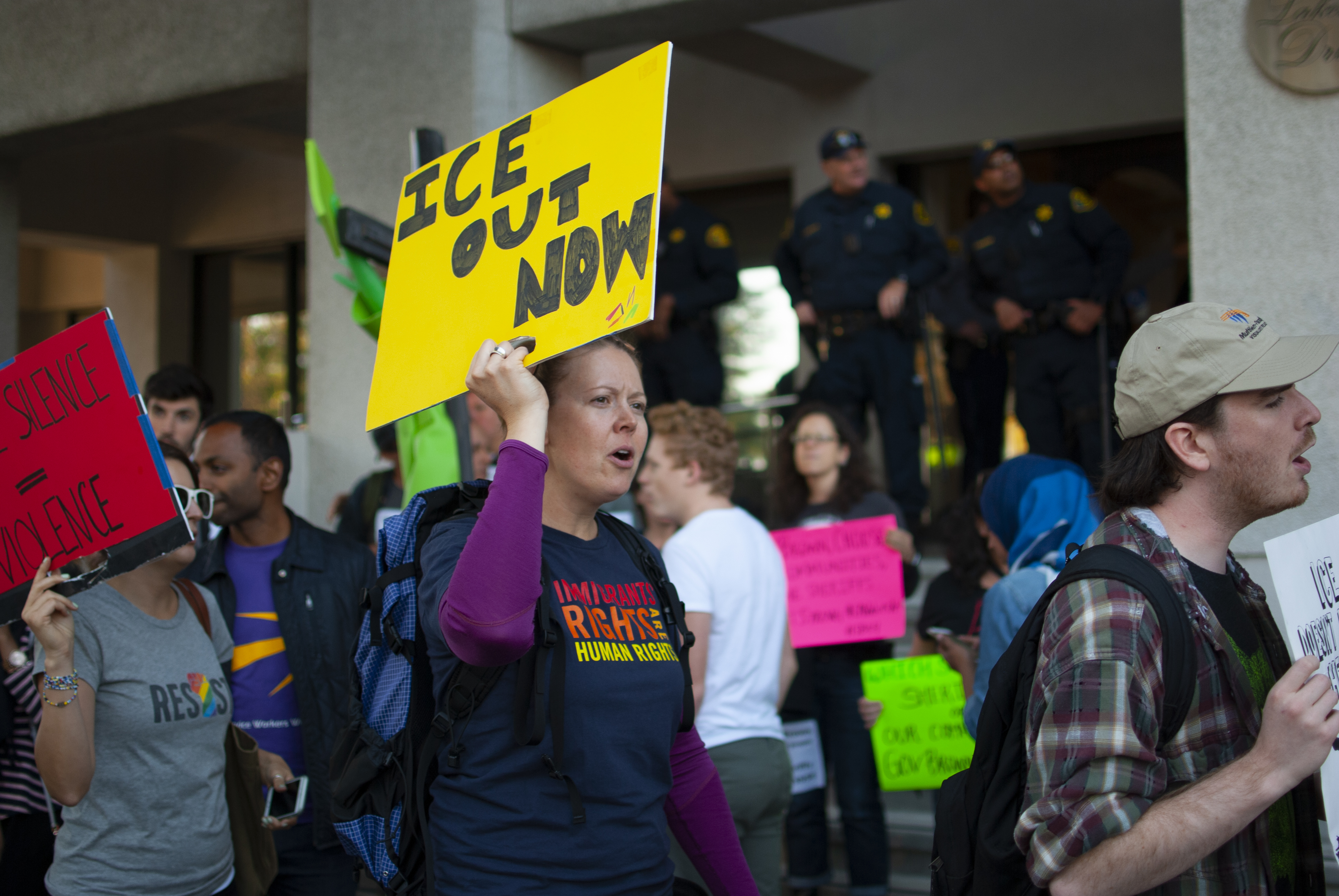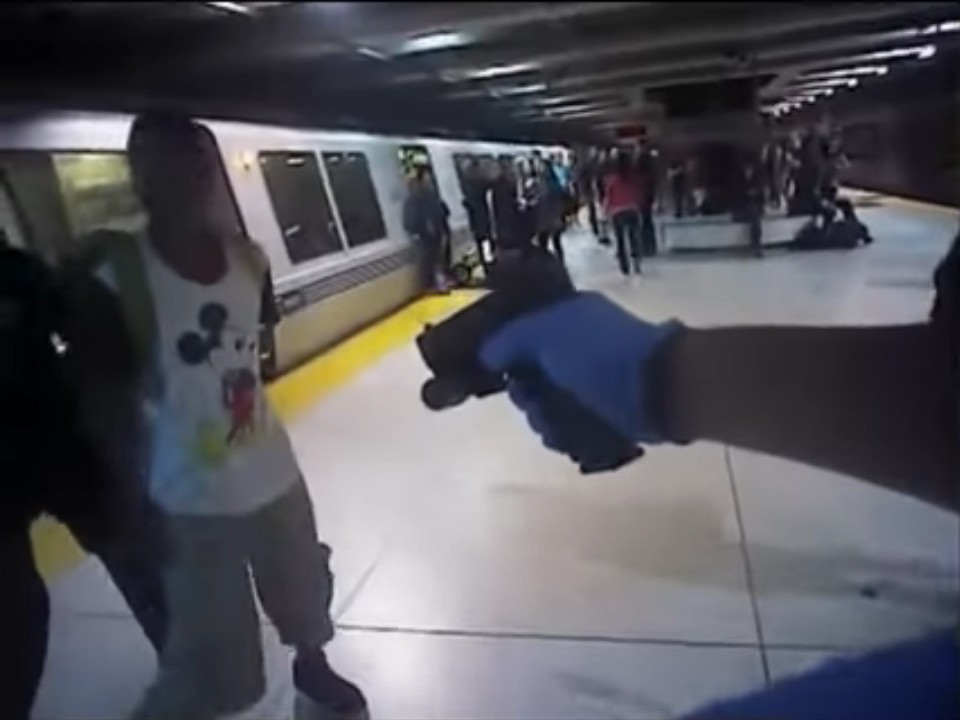When Gov. Jerry Brown signed SB 54, the so-called “Sanctuary State” law on Oct. 5, 2017, he wrote that it would bring “a measure of comfort to those families who are now living in fear every day.” The new law said that local authorities would not ask about immigration status during routine interactions and prohibited federal immigration authorities from commandeering local police.
It was a rebuke to the strict immigration enforcement of the Trump Administration, though California had been chipping away at local law enforcement’s cooperation with federal immigration authorities for years. In 2013, Brown signed the TRUST Act, which prohibited law enforcement from holding people in custody at immigration officials’ request.
Supporters of such laws argue that they are important to the public safety mission of local law enforcement: Undocumented immigrants should feel safe reporting crimes and acting as witnesses without fear of being questioned about their immigration status.
Yet many California police departments had policies stating that officers could detain people they had reasonable suspicion had entered the U.S. illegally. The policy said officers could consider a lack of English proficiency in deciding whether they were potentially undocumented immigrants.
As of June, eight California police agencies still had the policy posted on their website.
The agencies include four Bay Area police departments and one in Monterey County. They are: the Belvedere Police Department, the Foster City Police Department, the Port of Los Angeles Police Department, the Menlo Park Police Department, the University of California Merced Police Department, the Brisbane Police Department, the Laguna Beach Police Department and the Greenfield Police Department.
Most of the agencies said that they simply had not updated their public policy but they subscribed to automatic updates from policy provider Lexipol, a private company in California that provides pre-written police policies. The company says its clients include 95 percent of California law enforcement.
Indeed, many of the policies were two years or more old. Of the eight agencies that still had the policy posted, five said that their policies had been updated since then but not on their website. Police in Brisbane and the Port of Los Angeles did not respond to emailed questions.
Lexipol’s policy was updated on Feb. 15, 2018, six weeks after SB 54 took effect.
But not all agencies subscribe to Lexipol’s automatic updates. Furthermore, Lexipol’s model allows agencies to accept or reject policy changes or alter the policies to fit the needs of the agency. Lexipol’s policies are delivered via an online interface where officers can access, but there’s no public portion where anyone can see the latest policies.
The Port of Los Angeles’s policy is dated July 9, 2018, well after Lexipol updated its policy to reflect the change in state law.
Even before the Sanctuary State law passed, civil rights advocates argued the policy was legally erroneous. Adrienna Wong, a staff attorney with the ACLU of Southern California, sent a letter to Lexipol on April 12, 2017. She criticized Lexipol for not making any distinction between a criminal immigration violation, when someone crosses the border illegally, and a civil one, when someone enters the country legally but remains longer than permissible.
Furthermore, Wong says a lack of English proficiency should not be a criteria in establishing reasonable suspicion as 19 percent of Californians have limited English proficiency.
“By suggesting that officers may systematically consider characteristics widely-shared by Californians to arrive at reasonable suspicion of a crime, the Policy encourages profiling and illegal detentions, and runs afoul of the Fourth Amendment,” Wong wrote.
In an interview earlier this year, Lexipol co-founder Bruce Praet disagreed with the ACLU analysis of the policy but acknowledged it needed to be revised after the passage of SB 54.
All but one agency responded to a California Public Records Act request indicating that the department had no contacts with federal immigration officials and had made no arrests for immigration-related offenses. The Brisbane Police Department, a department of about 20 officers in Marin County, did not respond.

Menlo Park police Chief David Bertini said in an interview that he does not update the policy every time a new law is enacted and instead waits for Lexipol to issue an update. While officers are trained online using the Lexipol policies, Bertini said that any state law or city ordinance would preempt the police policy and that doesn’t cause any confusion among officers.
“Laws are changing every day,” Bertini said. “Laws change all the time, we understand that, we have to be up on case law, our officers are constantly being trained on new case law.”
The Menlo Park City Council enacted a “safe city” ordinance in 2017, which Bertini said he helped draft, that largely aligned with what was already written in state law. The department policy was not updated until Lexipol updated it the following year.
Jason Wu, police chief in Belvedere, said that his department was in the process of reviewing and updating the entire department policy manual and had last updated the immigration policy in March 2019. Greenfield police acting Chief James Hunt said that the department’s updated policy had been in place since July 13, 2018, and he brought the erroneous policy posted on the website to the department’s IT team.
Foster City police Chief Joe Pierucci said in an email he was “taken aback” when he read the sections of the department’s policy. He said that the department’s policies had been changed in March 2018 but confirmed that the old policies were still posted on the website.
“As the Chief, it is my responsibility to ensure that details such as these are accurate and updated, and I admit that I am embarrassed that this particular update did not occur,” Pierucci wrote.
While it appears that none of the departments with posted policies were conducting immigration enforcement, if an officer did, it could have costly results. When a police officer in Spokane, Washington, detained Gabriel Gomez, an undocumented immigrant, after a traffic collision until he was taken into custody by U.S. Border Patrol agents, the ACLU and the Northwest Immigrant Rights Project sued the city.
Eventually, Spokane settled the suit for $49,000 and Spokane agreed to revise its Lexipol-provided policy. Matt Adams, Legal Director for NWIRP, said in a statement after the settlement, “The changed policies will help the City to move forward in working to serve all the community members, regardless of their perceived immigration status.”



